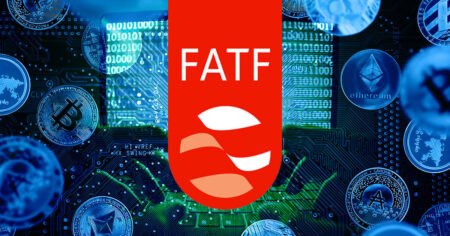Surge in Crypto Transactions in Bolivia: A Comprehensive Overview
In a remarkable development, the Bolivian central bank reported on June 27 that domestic cryptocurrency transactions reached $430 million over the past year, signifying an astronomical 630% increase compared to the previous year. This surge comes in light of the regulators’ decision to reopen formal payment rails for cryptocurrencies. The Banco Central de Bolivia (BCB) documented that users executed 10,193 transactions worth BOB 611 million (approximately $88 million) by May 31, 2025. Significantly, natural persons executed 86% of these transactions, with men constituting 77% of that demographic. Notably, the data only accounts for transactions conducted on channels officially registered with the financial system supervisor, ASFI, thus excluding the burgeoning peer-to-peer activities.
Explosive Growth in Digital Transactions
The first half of 2025 showcased an impressive acceleration in crypto payments—the value rose from $46.5 million in the first six months of 2024 to an astounding $294 million in the same timeframe of 2025. Such growth highlights the increasing adoption of cryptocurrencies in various transactions, including retail and cross-border dealings. The large share of transactions processed through Binance-linked rails indicates that users favor established platforms that assure security and reliability.
This transformation in the Bolivian financial landscape can be attributed to the Resolution 082/2024, which was issued on June 25, 2024. This pivotal regulation formally recognized "virtual assets" and enabled banks to facilitate customer orders to cryptocurrency exchanges. This regulatory shift has not only legitimized crypto in Bolivia but has also encouraged traditional financial institutions to adapt their services to meet the changing needs of consumers.
Regulatory Framework Enhancements
On March 13, the Bolivian government took another significant step by allowing the national energy company YPFB to utilize digital assets for fuel imports. This decision came in response to continuing shortages of dollars and challenges in fuel supply, indicating an effort to diversify monetary options in the face of economic adversity. The BCB is committed to increasing transparency in the crypto sector by publishing quarterly dashboards on exchange activities and working with the tax authority, SIN, to incorporate wallet analytics with existing tax records.
In a bid to ensure financial integrity and consumer safety, banks are required to file daily reports on cryptocurrency outflows. Furthermore, they must implement real-time screening against sanctions provided by the Office of Foreign Assets Control. While regulators have flagged 27 accounts for enhanced scrutiny, no fines have been imposed during the reviewed period. Such measures exemplify the balance between fostering innovation and ensuring a robust regulatory environment.
Consumer Protection and Education
Despite the progressive regulatory measures, officials have highlighted that custodial wallets remain excluded from the national deposit insurance scheme. This omission stresses the importance of individual responsibility when managing digital assets. Users are urged to keep their private keys offline securely and to double-check domain names before accessing wallets. In response to recent scams, particularly deep-fake investment schemes targeting social groups in La Paz, the government has initiated literacy programs focusing on educating users about financial risks.
Moreover, the BCB has emphasized the importance of financial literacy as a cornerstone of a thriving crypto ecosystem. With live demonstrations of scams and educational workshops planned across Bolivia’s nine departments, these initiatives aim to empower citizens to make informed decisions in this rapidly changing financial environment.
Advancements in Legal Framework
In May 2025, the Bolivian government under President Luis Arce introduced Supreme Decree 5384, which laid the groundwork for licenses for fintech firms and virtual asset service providers. This decree aims to establish a clear legal framework, aligning anti-money laundering controls with guidance from GAFILAT (Grupo de Acción Financiera de Latinoamérica), and elucidating definitions relating to tokenized assets, blockchain networks, and custody obligations. The financial oversight body, ASFI, has been given a timeline of 40 working days to publish implementing regulations, thus signaling the urgency for robust guidelines.
This newly minted legal framework is likely to attract more players to the crypto market, as companies will now have a clearer understanding of operational standards and requirements. By fostering a regulated ecosystem, the Bolivian government aims to bolster investor confidence while alleviating concerns around fraud and misuse, thereby promoting overall growth in the sector.
Conclusion: The Future of Crypto in Bolivia
As Bolivia continues to embrace digital assets, the future of cryptocurrencies appears promising. The current trajectory shows a strong inclination toward the integration of crypto in both private and public sectors. The government’s proactive approach in instituting comprehensive regulations, coupled with educational efforts aimed at mitigating risks, creates a conducive environment for growth.
With ongoing advancements in regulatory frameworks and an increasing rate of adoption, Bolivia is strategically positioning itself on the global crypto map. Financial authorities are not just allowing cryptocurrencies to flourish; they are actively working to ensure that the market develops in a secure, transparent, and responsible manner. This blend of innovation and regulation is expected to serve as a model for other nations grappling with the challenges and opportunities presented by digital currencies.

















